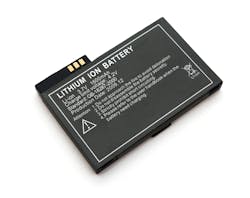Rising number of lithium battery incidents on airplanes worry pilots, flight attendants
NEW YORK - Saindy Pyles thought she was going to die with her baby son, Liam, clutched to her chest as she flew home to Wichita from Miami after photographing a wedding. Midway through the flight Pyles said smoke filled the cabin after she saw sparks and fire burst f, Stephen Stock, Amy Corral, Jose Sanchez, and Dilcia Mercedes report for CBS News. Continue reading original article.
The Military & Aerospace Electronics take:
Date goes Here -Plyes experienced what happens when a lithium ion (Li-ion) begins to smolder in the cabin of an airplane. The CBS News story notes that there's been "at least one" Li-ion battery incident on a passenger plane somewhere in the U.S. per week starting in 2021.
Li-ion fires are difficult because they provide their own fuel and oxygen and can burn underwater. Obviously, a difficult event is made even harder when it happens tens of thousands of feet in the air - or in checked baggage.
"It's the difference between being kept safe or being harmed," said Captain Dennis Tajer, spokesman for the Allied Pilots Association, the union for American Airlines' pilots. "When folks check in their bags, they're asked, 'Do you have any lithium batteries or e-cigarettes?' And that's just one of the dangerous goods that we're concerned about."
While airline workers can extinguish Li-ion fires, startup Pure Lithium says it has developed a new battery made of lithium metal, which does not burn. In CBS' report, the writers note that while Li-ion devices are commonplace, "Airline passengers should also follow directions from flight crew about turning off laptops and unplugging chargers during take-off and landing, and travelers should ask a flight attendant for help in retrieving cellphones that fall between their seats."
Jamie Whitney, Senior Editor
Military + Aerospace Electronics
